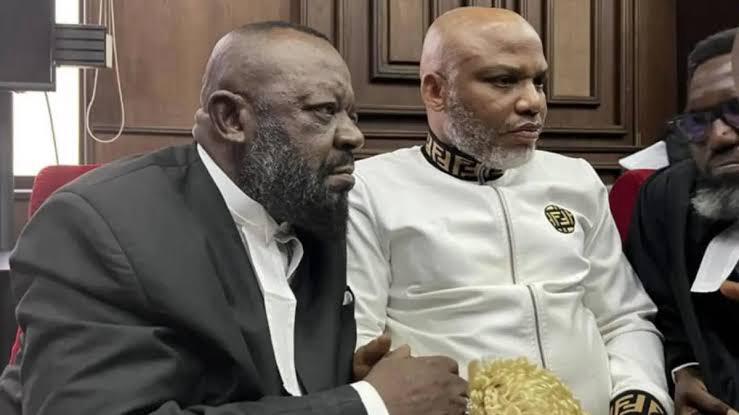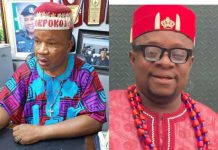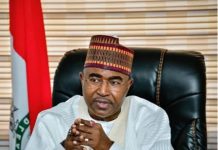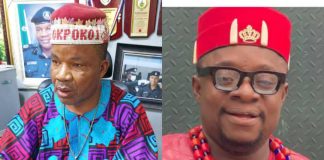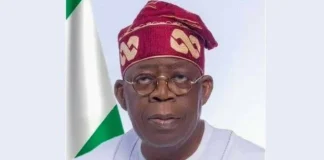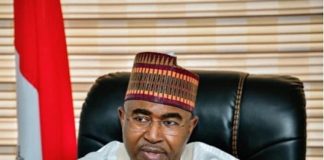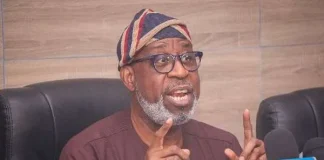🌿 Ruzu Non-Alcoholic Herbal Bitters
Ruzu Non-Alcoholic Herbal Bitters is a natural health supplement specially formulated to:
- ✅ Promote general wellness
- ✅ Detoxify the body
- ✅ Support the treatment of various ailments
Made from a powerful blend of 100% organic and medicinal herbs, Ruzu is completely alcohol-free, making it ideal for:
- 👪 All age groups
- 🌱 Health-conscious individuals
- 🌿 Anyone seeking non-alcoholic herbal remedies
Whether you're looking to boost your vitality, cleanse your system, or support healing the natural way, Ruzu Bitters offers a trusted herbal solution.
The DSS has stated that its activities are strictly limited to Nigeria’s borders and has disassociated itself from the contentious arrest of Nnamdi Kanu, the leader of the Indigenous People of Biafra (IPOB), in Kenya.
Cross-examination of a prosecution witness, a DSS intelligence officer known by the code name BBB, reportedly resulted in this clarification.
The DSS’s suspected participation in Kanu’s arrest and its capacity to function outside of Nigeria were among the questions posed to BBB during his evidence.
He adamantly declared that the DSS doesn’t have the authority to make arrests outside of Nigeria and that it solely works inside its boundaries.
In response to claims that the BBB was behind Kanu’s kidnapping in Kenya, the organization stated, “We do not have the powers to effect arrest beyond Nigeria’s borders.” According to Kanu, he was “kidnapped” from Kenya and brought back to Nigeria against his will in 2021.
The DSS is under the office of the National Security Adviser (NSA) and functions independently of political influence, the witness added, providing further clarification on the agency’s organizational structure.
The Attorney General does not oversee the DSS’s functioning, BBB affirmed when questioned if the agency is subject to political or ministerial influence.
Regarding the collection of intelligence, BBB clarified that the DSS uses a variety of sources, such as social media, human intelligence, and other channels, and that its agents are competent in acquiring information as required.
Subsequent interrogation showed that the DSS witness connected Kanu’s Radio Biafra broadcasts to inciting violence, particularly during the 2020 EndSARS protests. According to BBB, Kanu had declared his willingness to use all measures necessary, including armed confrontation, to promote the formation of Biafra.
The witness further emphasized how Kanu’s divisive remarks fueled events like the setting of the Lagos State High Court, the cargo shed at Murtala Mohammed Airport in Lagos, and an Ebonyi State police station.
Paul Erokoro, the defense attorney, asked for an adjournment at one point during the hearings so they could submit a video clip they planned to use as evidence.
The motion was granted, and certified true copies of the rulings from three cases Nnamdi Kanu filed in different courts—the High Court of Enugu State, the Federal High Court in Umuahia, and the Abia State High Court—about the enforcement of fundamental rights were admitted by the court.
As the day got underway, trial judge Justice James Omotosho issued a warning against the improper use of social media and live streaming of court proceedings.
One member of the defense team, Aloy Ejimakor, was particularly warned by the judge not to disseminate false material on social media.
Read Also: ‘It Hasn’t Been Easy’ – Mercy Aigbe Speaks on Challenges of Single Motherhood
Concerning the unlawful live broadcast of the trial, lead defense attorney Kanu Agabi had specifically brought up Ejimakor’s activities. Agabi proposed prohibiting cell phones in the courtroom in order to stop future infractions.
Responding that the issue is too serious to be trivialized, Justice Omotosho emphasized the value of professionalism throughout the trial. Ejimakor was also cautioned that persistent misbehavior would result in disciplinary action, which might include disbarment.
Justice Omotosho reaffirmed in her closing remarks the importance of a speedy hearing for the sake of all parties, particularly Nnamdi Kanu, who has been detained for a long time. In order to conduct the last cross-examination of the second prosecution witness, the case was postponed until Thursday, May 22.

